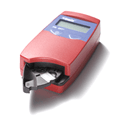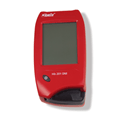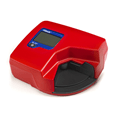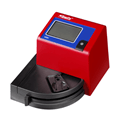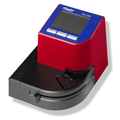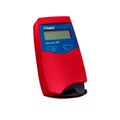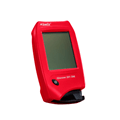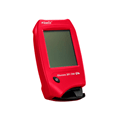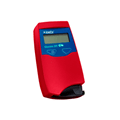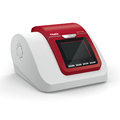A child who is not feeling well can display discomfort in a variety of ways. One child may be listless and unhappy, while another is crying inconsolably. When parents feel they can’t handle the situation at home and bring their child to the clinic, their obvious desire is to have a clear answer about what’s wrong. Is it something serious? Or something easily cured, like a simple infection?
A position of trust
Finding out what the symptoms really are, is often an important part of the medical examination of children. Unlike adult patients, children can usually not explain what the symptoms are all about. However, it is neither always possible to explain to a pediatric patient why an examination has to be done, nor easy to convince that a somewhat painful procedure can be necessary and is done for a good cause. Here the physician’s clinical experience is of course an invaluable tool, as well as intuition and detective skills. As a complement to the clinical experience, accurate point-of-care testing can help when diagnosing.
HemoCue point-of-care systems provide immediate results, meaning no unnecessary time is spent waiting for a correct treatment decision based on solid knowledge. When the parents return home with their child, they can feel reassured that they do so with the best treatment choice for their child.
Solutions at hand
HemoCue point-of-care testing systems give quick and reliable results with laboratory quality. With accurate tests for glucose, hemoglobin and white blood cell count, the basis for a good clinical evaluation is provided. With these systems at hand, you can manage all of the following directly at the point of care:
- Screening, diagnosing and monitoring of diabetes
- Detection and monitoring of anemia
- Indication of general infection


